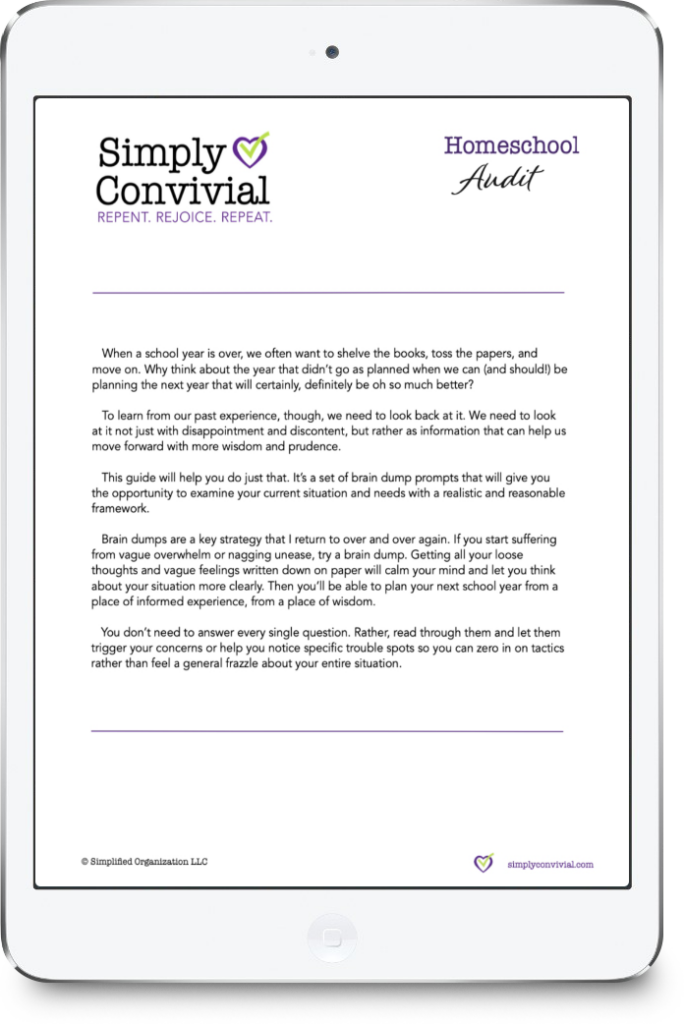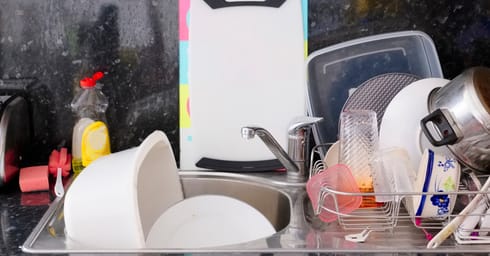What I learned from being homeschooled
I wasn’t allowed to ride my bike.
Back in the 80s, homeschooling was not hip. Homeschooling was not even a category anyone but a few families who listened to Focus on the Family had in their heads.
So riding my bike during school hours was not ok – I’d be stopped as a truant for sure. In fact, once I did go ride my bike around the neighborhood at lunch. It was the early 90s, and I was probably wearing my favorite stirrup leggings and oversized t-shirt (how to put together outfits was not something I learned from being homeschooled in the 80s & 90s – but who did back then?).
A police cruiser came around the corner (it might have been the officer who lived on our street; I’m not sure – we were in a very quiet neighborhood) and, sure enough, slowly pulled alongside, rolled down his window, and asked why I wasn’t in school.
“I’m homeschooled,” I replied, “I’m on lunch break.” He had a blank expression, but nodded and went on his way. It’s probably good that I didn’t mention that I’d finished school before lunch.
So, having been homeschooled all the way through, from a nonexistent kindergarten year, when my mom kept trying to make me go outside, through 10th grade, after which I entered the community college, graduating at 18 with my A.A. degree, I already knew a few things about homeschooling before we began, as did my husband who was homeschooled until high school.
Mainly, we already knew homeschooling was no miracle solution or hope of salvation and perfect families. I knew homeschoolers struggled too.
But I also knew that if you wanted to find people who read books and did interesting things – homeschoolers were your best bet. That whole “finished by lunch” thing allowed even the early homeschoolers who only had the choice between Bob Jones textbooks, Abeka textbooks, or unschooling, plenty of freedom for hobbies – including wide reading.
I know that time to read and play was not a benefit to overlook or disregard.
Here are 5 things I learned being homeschooled that have helped me be a better homeschool mom myself.

Kids are still kids, even if they’re homeschooled
Perhaps one might look at a family of homeschooling kids from a distance and think those kids obey right away, all the way, with a cheerful heart every day – no problem.
They can sit and listen at church or sit and engage themselves with a book or drawing or just daydreaming, even though they aren’t sitting and listening in a classroom all day. They are relatively articulate and also respectful. Looks like it (sometimes), anyway.
It turns out, though, that not only are children born persons, they’re also still children, whether or not they’re homeschooled.
So
- They bicker and squabble
- They “forget” and “lose” – both intentionally and not – schoolwork, books, chores, and assignments
- They like to get their own way
- They cry and fuss and get angry
- They break things, spill things, drop things, and generally interrupt the flow with accidents
- They have a hard time cleaning their room or keeping a pencil
And, because we homeschool, we see all of it all day instead of only a slice of it – and, because we homeschool, our kids are themselves in their schoolwork. They aren’t putting on their public face during lessons – mom gets the full meal deal of authenticity with her kids.
It’s tiring, but it’s a good thing. Our goal is to help our kids (and ourselves!) learn responsibility and self-control, and we’re bound to have plenty of daily opportunities.
Kids will not pay more attention than mom pays
It’s alarming, but true: A child’s understanding or interpretation of a standard never automatically aligns with the parents’ standard, stated or left unspoken.
Follow-up is necessary, no matter how good or smart or responsible the child is (ask this good kid, oldest child, how she knows).
Basically, if you aren’t looking at the work, the work isn’t being done. Independent learning doesn’t mean mom can assign and forget.
Books are the best teachers
The second best thing my parents did as homeschool parents (the first thing was raise us in the faith with the church always as “our people”) was surround us with books and give us a lifestyle of reading.
Want to know something? Go to the library and get 5 books on it – that’s how you start anything (I grew up before Google). It wasn’t a lesson so much as simply What Was Done.
My dad always had a book stack – both of purchased and library books. My mom always had books by her chair. We didn’t have much money, but there were always plenty of books.
We’d finish our textbook school work as quickly as we could in the morning so we could get on to reading what we wanted to read (or, in my sister’s case, drawing incessantly – that shows, too).
Reading wasn’t school; reading was life. Reading was what you did with free time. Reading was the reward after the chore (of Saxon).
What I learned best, I learned from the books I chose to read, not from the textbooks (and it showed, too – I read a lot of flimsy historical fiction). My husband said the same thing when we were having early conversations about homeschooling methods – but he at least knows all the WWII battles and planes.
We agreed from the beginning that one of our primary goals was to have children who picked up books and read, of their own free will, for their own pleasure.
(I was a guest on The Read-Aloud Revival awhile back – episode 46 – talking about this topic.)

Learning is the work of the student
With free reading and free afternoons being the most influential part of my own homeschooled childhood, it seems a no-brainer to me that learning is something a person does, not something done to a person.
Yet, learning is the work of the student – it takes effort. Some effort we take we derive simultaneous joy from, and some effort gives joy after its goal is accomplished – learning involves both kinds of efforts.
Learning is like eating and like chores.
Some children are picky eaters, others are not, but all need a balanced diet. It’s a parent’s job to determine what each child needs and to help him get it. Eating is the job of the person – no one else can eat for him. But that doesn’t mean the parent has no duty to make sure that he eats and eats healthy food, too.
How many children, especially older than 7, do chores voluntarily without ever being asked, taught, or required? How many children who have chores always do them without complaining? If someone else does the chore, the child does not have chores – he does the work, or they aren’t his chores.
Parents delegate jobs, teach how, and administer consequences for not meeting standards. Some things we all need to know how to do, we need to enjoy having done, that we never would if left to ourselves. That’s what parents are for.
Children aren’t left to themselves in any of these three areas. God gave them parents, and so we have a duty.
It is less the curriculum used that matters and more the home atmosphere and family standards that have an effect on food tastes, work ethic, and love of learning. The educational philosophy you adopt or the books you buy don’t matter so much as a home with loving, firm standards and an expectation of respect and obedience.
A child must do the work of learning, which starts not with choosing books to read but with learning to obey her parents, submitting her will to those in authority and doing what is right rather than what is preferred.
Related: The Goal of Education Is Virtue.
God blesses His children; we don’t earn the blessing
It’s easy to look to parenting or schooling choices as a sort of panacea. In the extreme, it becomes a source of perceived salvation – if I do this right then I will get the result I want.
The result we want might be good, but if our plan is self-sufficient and self-dependent, it will not work – and that is good. We need to find our salvation in Christ alone.
What matters is faithfulness in where we are with what we have and trust in God, Who works all to the glory of His name, and that in His good time.
That is a homeschool mom’s joy and comfort, even on days with math tears, sibling fights, and sloppy work.

HOMESCHOOL AUDIT
Make next year better based on how this year went.
Download the free homeschool audit and use this year’s experience to make next year better.


